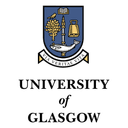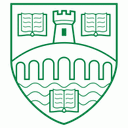Research Associate focused on the structural biology of bacterial secretion systems
About the role
We are seeking to recruit an enthusiastic and motivated structural biologist to join the group of Prof Harry Low, Department of Infectious Disease (www.thelowlab.org). The research project focuses on determining the molecular mechanism of bacterial secretion systems including the Tad and Type 4 pilus systems. The position is funded by an 8 year Wellcome Trust Discovery award.
What you would be doing
You will be leading your own project working from initial clones through to protein purification, structure determination and biochemical/biophysical mechanistic dissection. You will be working on challenging multi-component membrane complexes both in-vitro and in-cell. Specific methodology will include a range of structural biology techniques including cryo-electron microscopy (SPA and tomography), and TIRF microscopy combined with single molecule FRET to probe protein dynamics.
What we are looking for
- You will have a PhD in structural biology, either cryo-EM, X-ray crystallography or NMR.
- *Candidates who have not yet been officially awarded their PhD will be appointed as a Research Assistant within the salary range £43,863 - £47,223 per annum.
- Experience in the design and execution of workflow for structure determination of proteins, from molecular biology/biochemical experiments (e.g. DNA cloning and mutagenesis, protein purification) through to structural data collection, processing and model building is expected.
- Experience in cryo-EM workflows including sample preparation, data collection and processing is essential.
- Experience in light microscopy studies is desirable.
- You must have a strong research track record demonstrated by at least one first author publication in an international journal or bioRxiv.
What we can offer you
- An inclusive, friendly but ambitious lab environment that aims to support you in your mission to make important discoveries and generate world class publications.
- A well-funded lab underpinned by world class facilities.
- Opportunities to attend national and international conferences to showcase your work and grow your academic network.
- The opportunity to continue your career at a world-leading institution and be part of our mission to continue science for humanity.
- Grow your career: gain access to Imperial’s sector-leading dedicated career support for researchers as well as opportunities for promotion and progression.
- Sector-leading salary and remuneration package (including 39 days off a year and generous pension schemes).
- Be part of a diverse, inclusive and collaborative work culture with various staff networks and resources to support your personal and professional wellbeing.
Further Information
This is a full time, fixed-term contract for 36 months.
This role will be based at the South Kensington campus primarily. Collaborative work with Prof David Rueda (TIRF/single molecule FRET) will be undertaken at MRC Laboratory of Medical Sciences (LMS) within Imperial’s Hammersmith campus.
If you require any further details about the role, please contact: Prof Harry Low – h.low@imperial.ac.uk
About Imperial
Welcome to Imperial, a global top ten university where scientific imagination leads to world-changing impact.
Join us and be part of something bigger. From global health to climate change, AI to business leadership, we navigate some of the world’s toughest challenges. Whatever your role, your contribution will have a lasting impact.
As a member of our vibrant community of 22,000 students and 8,000 staff, you’ll collaborate with passionate minds across nine London campuses and a global network.
Whoops! This job is not yet sponsored…
Or, view more options below
View full job details
See the complete job description, requirements, and application process
Express interest in this position
Let Imperial College London know you're interested in Research Associate focused on the structural biology of bacterial secretion systems
Get similar job alerts
Receive notifications when similar positions become available











